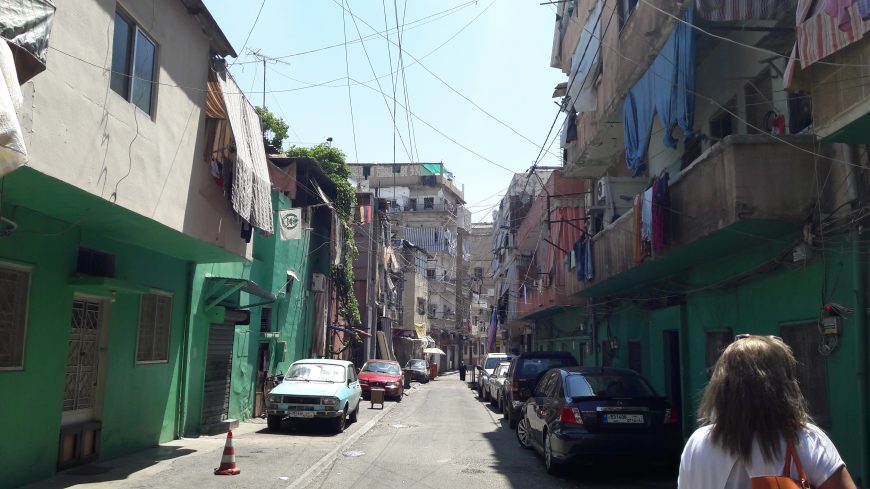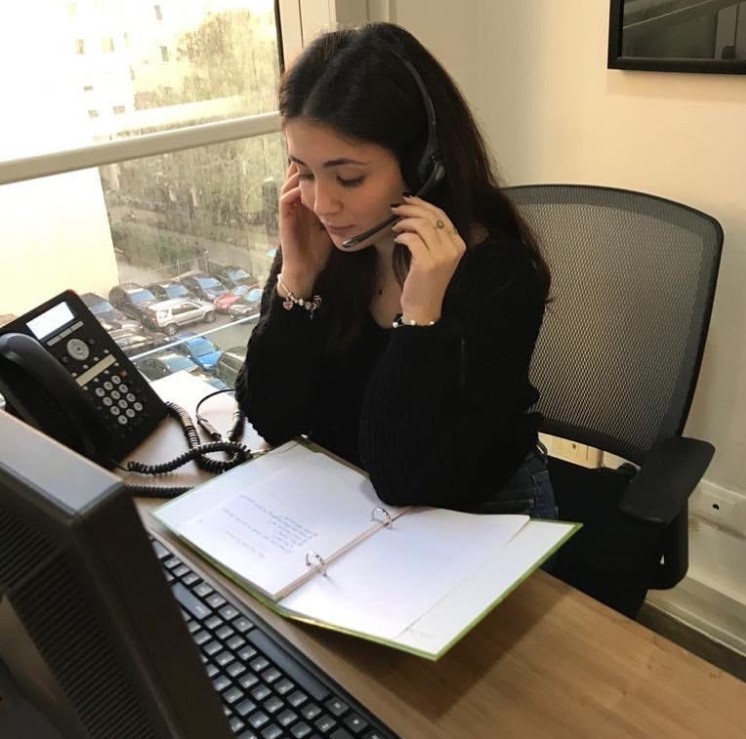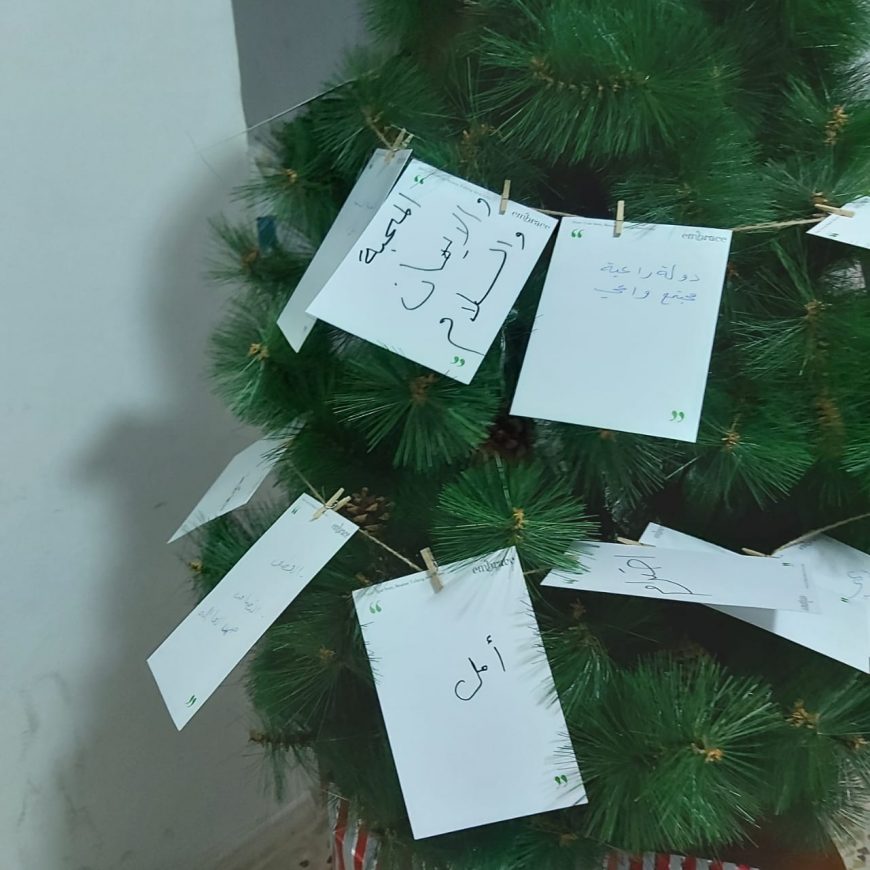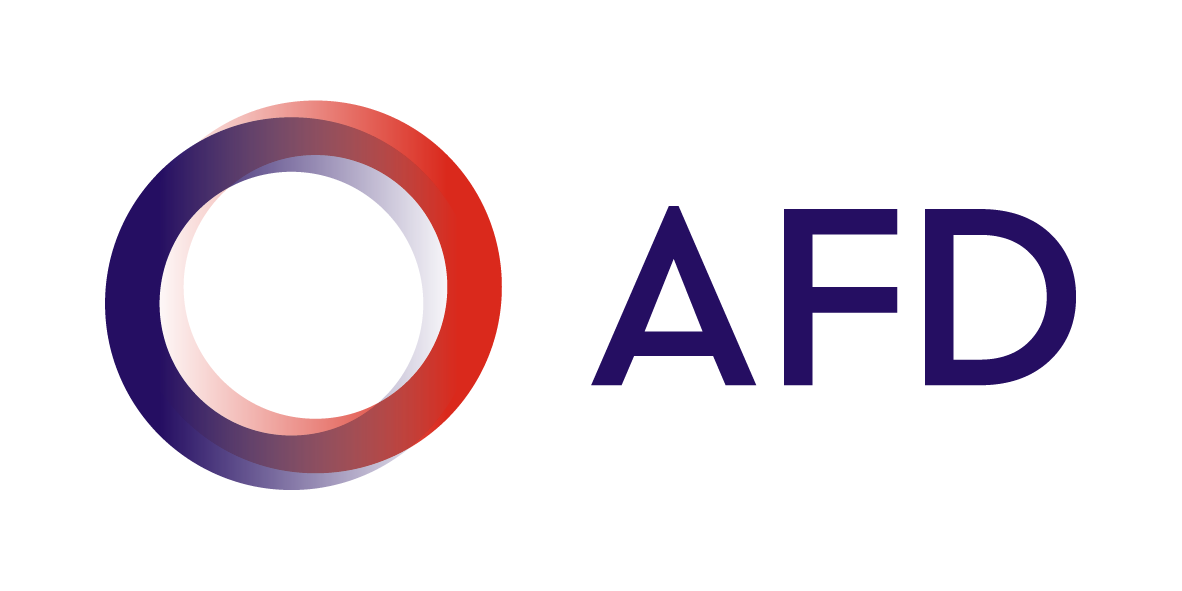It is great to see that mental health is ‘trending’ today. The trend comes from more people realizing that mental health is a part of their everyday life and is relevant to all kinds of work, situations, crises, and more
The unfolding financial and health crises in Lebanon have pushed mental health to the forefront of the public debate. The conditions which exacerbate stress are intensifying with the prolonged lock-down and the increasing uncertainty of tomorrow.
In this context ACTED, in partnership with the National Mental Health Program, is improving the capacity of local Civil Society Organizations and Social Development Centers to provide integrated community-based mental health and social services to vulnerable communities.

In Lebanon, both refugees and Lebanese host communities have been heavily impacted by overlapping financial and political crises, triggered by increased taxes on primary goods such as gasoline and tobacco. These tax increases, combined with long term frustrations, led to nation-wide protests against the stagnant economy, unemployment, endemic corruption in the public sector and the failures of the government to provide basic services such as electricity, water and sanitation.
The situation aggravated in March 2020 with the outbreak of COVID-19, when the government enforced a national lockdown, now entering its 7th week. The circumstances have led to a 50% drop in purchasing power with soaring prices for essential goods. In addition, the prolonged containment measures reduced access to basic services and further exacerbated already existing needs stemming from Lebanon’s ongoing refugee crisis.
With a limited industrial and manufacturing sector and little in the way of natural resources, Lebanon relies heavily upon imports. However, the recent devaluation of the Lebanese pound and the shortage of foreign currency have led to a significant reduction in key imports. Soaring inflation is the result, pushing basic goods out of reach for many families. Increasing numbers of people are looking for professional help to deal with stress and anxiety.
This unprecedented compound of stressors has a severe impact on the mental health of people of all ages and backgrounds in the country. Vulnerable groups, especially elderly people living alone, people with special needs and their caregivers, and women and girls who endure abusive relationships within their homes remain the most exposed to risks such as mental distress, anxiety and gender-based violence.
While most of the national attention and resources are given to the life-saving health-care interventions, mental health is and will continue to be one of the main challenges in the aftermath of the crisis.
Lifesaving assistance in a time of crisis: the Embrace Lifeline
To improve the access to basic health and psychosocial services among marginalized communities, in 2019 ACTED partnered with Embrace, a Lebanese NGO which works to raise awareness around mental health in Lebanon.
Since its launch in 2013, Embrace has worked on several national awareness and community outreach campaigns to spread information about mental illness, break the stigma, provide support to those affected, and help foster a resilient and emotionally healthy community which cares for the mental wellbeing of its young and old.

The most successful initiative launched by the NGO to date is the Embrace Lifeline – the emotional support and suicide prevention helpline run by the NGO with nationwide coverage. “The Embrace Lifeline continues to stand as the sole emergency mental health response in Lebanon”, said Lea Zeinoun, the Embrace’s executive director.
“More and more people are recognizing the Lifeline as a preventive tool and seeking its support,” said Zeinoun.
Zeinoun also highlighted that the amount of calls registered after October 2019 dramatically increased, while requests were received to extend the lifeline operating hours. While the amount of calls started to decrease in January after the peak registered in December 2019, they again surged during the outbreak of COVID-19 (OCHA Lebanon, March 2020), with people concerned about the spread of the disease and fearing contamination.
In this context, ACTED partnered with Embrace to ensure the Lifeline was available 24/7 by mid-2020.
“I really appreciate the opportunity ACTED has brought. It is very difficult to secure funding for mental health projects in this country. ACTED’s programme has really connected a lot of mental health actors together, granting them important opportunities for growth,” said Zeinoun.

Making mental health support accessible to all
The specialized telephone service offered by Embrace includes a network of expert operators who provide emotional support and suicide risk assessment, as well as serve as a source of referrals for community resources and treatment programs for people in need – be it for access to medical care, or specialized psychological care, etc. There are currently 60 trained volunteer helpline operators on staff.
Thanks to the Lifeline, vulnerable persons in quarantine and isolation in Lebanon can rely on essential life-sustaining services, including mental health and psychosocial support. In a time when communication is limited to social media and the spread of misinformation is growing, the Embrace Lifeline offers inclusive risk communication and emotional support in order to ensure that all persons in need can access vital information to protect themselves, their families and the broader community.
This project was made possible through support from the EU MADAD Fund and Agence Française de Développement:

